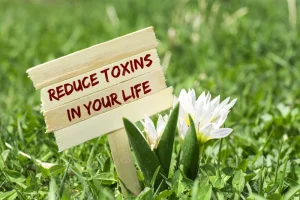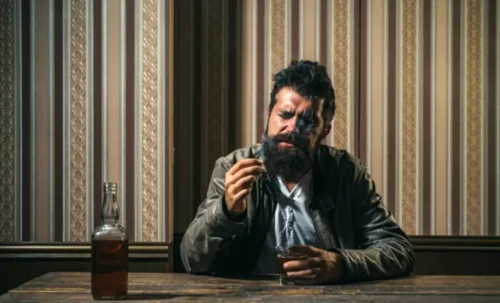
In the short term, these alterations to our sleep pattern can lead to a restless second half of the night. In the long term, frequent disruptions to our natural sleep cycle may alter drug addiction the homeostatic drive in a more permanent way. People who abuse alcohol long-term don’t seem to display the deep recovery sleep that most people show after sleep deprivation, suggesting that the homeostatic drive is no longer functioning as it should. Many of us have indulged in a glass of wine to help send us off to bed, and more than 1 in 10 people uses alcohol to beat stress-related insomnia and sleep better at night. However, the bulk of the evidence shows that alcohol doesn’t improve sleep. On the contrary, as alcohol passes through the body, it exerts a number of biochemical effects that tend to lead to poorer sleep.
- Every recovery journey is unique, but it’s universally true you shouldn’t have to go it alone.
- Although there’s no evidence that alcohol can cause narcolepsy (sleepwalking), it does disrupt REM sleep, which may make the onset of sleepwalking more likely.
- Also, getting up multiple times at night puts you at increased risk for falling.
The negative effects of alcohol

Stage 3, also called slow-wave sleep, is the deepest stage, typically making up about a quarter of your sleep during the night. This is the phase when the body performs essential maintenance, like repairing tissue, strengthening the immune system, and developing bones and muscles. Alcohol has been shown to boost the amount of slow-wave sleep you get in the first half of the night, which could potentially increase the risk of sleepwalking, sleep apnea, and other sleep problems. The sleep disruptions that tend to occur in the second half of the night after you’ve been drinking could make it difficult to enter and maintain stage 3 sleep, so you’re unlikely to feel refreshed in the morning. If you’re regularly feeling under-rested, heavy drinking may be to blame. If you do not have an alcohol use disorder (AUD), here are some steps you should take.
Problems associated with drinking before bed

What I recommend to my clients is, you can still drink and have fun (c’mon! we need to enjoy life!) — but do it does drinking alcohol help you sleep in moderation. Maybe 2-3 times a week, and drink earlier in the evening — think happy hour instead of a nightcap. The rule of thumb is you should give yourself an hour to process each drink before bed. If you have two drinks, you want to stop drinking two hours before bed.
Is a nightcap before bed still ok?
- Researchers found that chronic or habitual alcohol use before bedtime led to bouts of insomnia.
- By contrast, another 2023 study found similar rates of death between nondrinkers and light to moderate drinkers.
- The primary characteristic of these disorders is episodes of binge eating during the night.
- Sleep and circadian rhythm disruption from alcohol also contribute to next-day tiredness, fatigue, irritability, and difficulty concentrating.
This is significant, as REM sleep – sometimes called “dreaming sleep” – is thought to be important for memory and regulating emotions. The most effective time of day for the body to metabolize alcohol, according to research? That’s right, the traditional “happy hour” time is actually when the body is most prepared to process that cocktail. If that mimosa with brunch hits you particularly hard, it may be the result of circadian timing. While heavy alcohol use can trigger insomnia, the opposite is also true. People with insomnia have an increased risk of developing alcohol use disorder, potentially because many individuals turn to alcohol as a sleep aid.
How to achieve better sleep and sleep quality without alcohol
The trial found that semaglutide didn’t appear to affect how many days out of the week people chose to drink alcohol – just that when they drank, they drank less. And that may be a helpful goal for people seeking treatment for AUD, said Dr. Raymond Anton, an addiction psychiatrist and emeritus professor at the Medical University of South Carolina. When participants returned to the living room lab at the end of the study, those taking semaglutide drank about 40% less alcohol than those on placebo, the study found.

Health Benefits of Cinnamon, According To Experts

For example, people who’ve had alcohol may experience more frequent periods of lighter sleep or being awake, especially during the second half of the night. So after a few drinks, you’re likely to have increased wakefulness and more light sleep. Since alcohol adversely affects a person’s sleep quality, they’re likely to feel fatigued during the day, leading them to drink coffee or energy drinks to stay awake and sedate themselves with alcohol at night. These people will likely find they have to drink more and more as time goes by to overcome the tolerance they have built up to alcohol’s sedative effects.
- As a result it may precipitate — or increase the frequency of — parasomnias which occur during this stage of sleep.
- So researchers may not find the same results on larger or more diverse groups.
- Interfering with your body’s natural rhythms will result in lower-quality sleep overall and may even cause you to wake up throughout the night.
- When you consume alcohol before bed, your body metabolizes the alcohol throughout the night.
- In addition, alcohol may reduce the risk of one condition (such as cardiovascular disease) while increasing the risk of another (such as cancer).
- Guy Meadows, a sleep researcher and co-founder of The Sleep School, an online platform offering science-based support around sleep, told Live Science that alcohol affects the four stages of sleep in different ways.
As your body metabolizes the alcohol, glutamine production kicks into overdrive and wakes you up. It’s one part of the rebound effect the body goes through as it clears alcohol from your system, which is linked with frequent sleep disturbances in the second half of the night. Consuming alcohol could also result in an imbalance in the sleep stages you experience. However, rapid eye movement sleep (REM) is also a vital part of the sleep cycle, since it aids in mental restoration. The circadian rhythm is your body’s internal clock, which helps you feel awake during daylight hours and sleepy at night.
” This is because alcohol reduces sleep homeostasis, your body’s natural ability to regulate sleep. Once the sedative effect wears off, it triggers a rebound effect, waking you up earlier than usual. These limitations make it hard to know how much to rely on studies that find health risks (or benefits) to alcohol consumption.